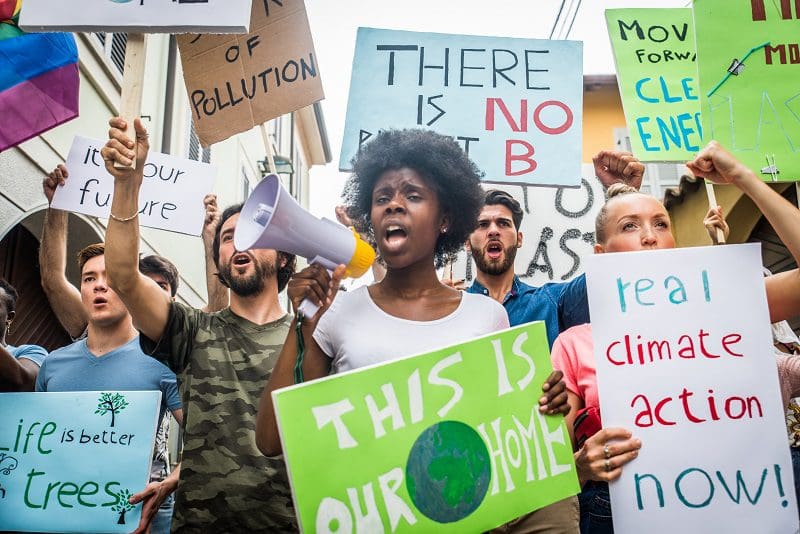
The Intergovernmental Panel on Climate Change’s (IPCC) 2021 assessment, the gold standard summary of current climate science, tells us that the climate crisis is upon us. This means that whatever a funder may care about, the growing climate crisis will stop them—directly or indirectly—from achieving their goals. So, for example, if you’re a program officer seeking to improve the lives of agricultural workers, you will need to consider the debilitating effects of heat domes and wildfire smoke on workers, as well as the impact of climate change on human migration and crop yields.
While the same IPCC assessment concludes that we can still avoid the worst-case scenarios if we boldly and quickly transform our society, philanthropy as a whole has been far from bold. As of 2020, less than 2% of all global philanthropy dollars addressed climate mitigation and even less on issues of adaptation, resilience, and climate justice.1
Addressing the climate crisis can no longer be the work of the few foundations and donors who fund climate work. Instead, we need an “all-of-philanthropy” level of engagement, expertise, and resources.
That’s the conclusion we drew from our research during the summer of 2021, when a team from FSG, supported by a grant from the William and Flora Hewlett Foundation, sought to answer the question, “How might more foundations effectively begin to support front-line actors addressing the climate crisis?”
During the research process, 45 organizations contributed their thoughts, experiences, and insights. Interviewees included private foundations, nonprofit organizations, grassroots groups, philanthropy-supporting organizations, and others.
In our report, Time to Act: How Philanthropy Must Address the Climate Crisis, we offer five recommendations for funders, especially those who may not have previously engaged in climate-related grantmaking or investments:
- Learn about climate and climate justice: Investigate how the climate crisis affects the issues, populations, and places aligned with your mission and actively listen to front-line communities.
- Reckon with and change internal practices: Reflect internally to understand how biases, assumptions, policies, practices, and cultural norms may inhibit the impact you seek or cause harm.
- Build political and economic power in front-line communities: Support grassroots efforts with attention to political and economic power-building, so front-line communities in the Global North and Global South lead, control, and benefit from the necessary economic transition.
- Expand the funder toolbox: Use convenings, advocacy, narrative change, and relationships to shift public perception, influence policy, and engage peer funders in climate action.
- Utilize foundation investment and operations as levers for change: Align investments practices with climate goals and operations with sustainable practices and support grantees to do the same.
To illustrate the many ways to be a climate funder, the report highlights the journeys and experiences of a range of U.S.-based private foundations—including community foundations; large, multi-issue foundations; and family foundations.
While funders can pursue many pathways to address the climate crisis, how funders go about this work is as important as what they choose to support. We encourage funders to directly support climate justice and ensure that front-line communities—especially efforts led by Black, Indigenous, and other people of color—in the Global North and the Global South are leading in the ongoing economic, social, and environmental transitions. As part of considering the root causes of the climate crisis and supporting climate justice, funders must work to shift systems—in particular, moving away from extractive, harmful systems to healthy, regenerative systems.
Becoming a climate funder starts by listening to the most impacted communities and conducting an honest examination of organizational responsibility, accountability, and the root causes of this crisis. Armed with that knowledge, we must ask what we can do with our resources, expertise, and relationships. Above all else, we must consider the consequences of inaction, to the communities we serve and to ourselves, as organizations and individuals.
1 Helene Desanlis, Elin Matsumae, Hannah Roeyer, Anthony Yazaki, Muniba Ahmad, and Surabi Menon, Funding Trends 2021: Climate Change Mitigation Philanthropy (ClimateWorks Foundation: October 2021), https://www.climateworks.org/report/funding-trends-2021-climate-change-mitigation-philanthropy/.
